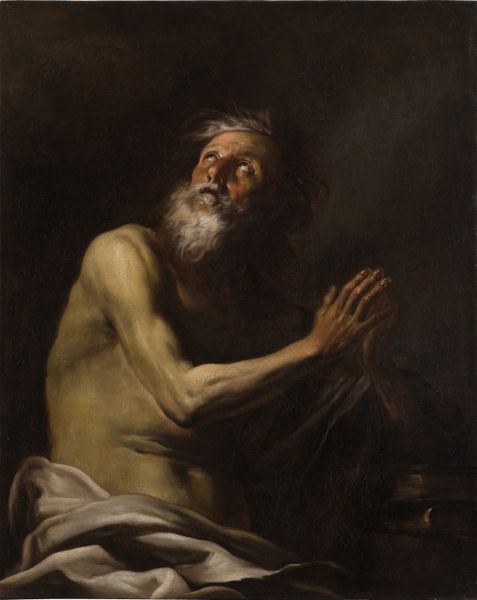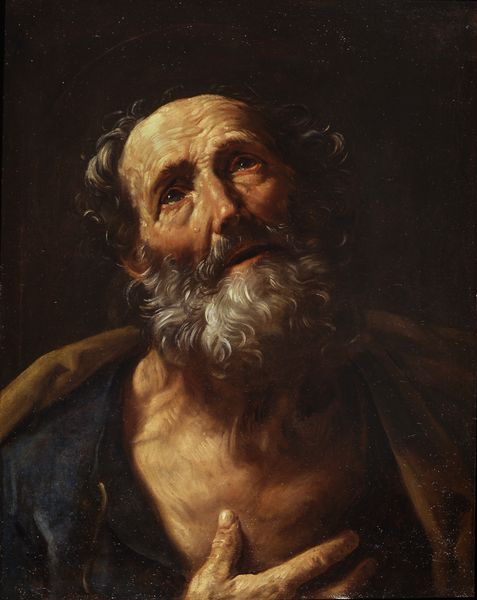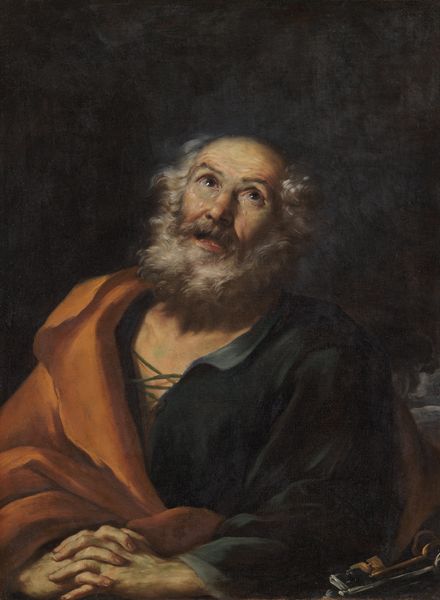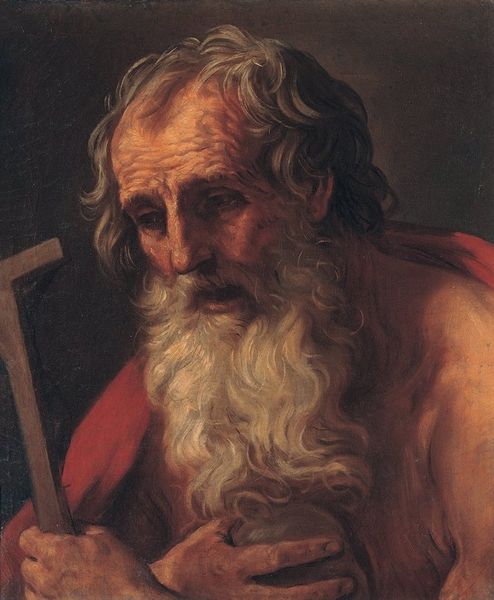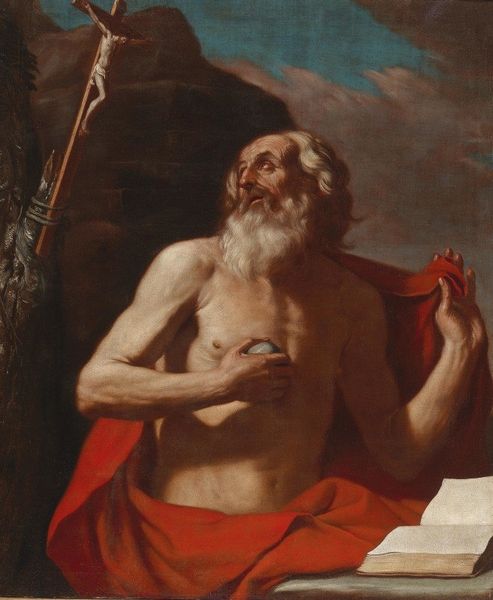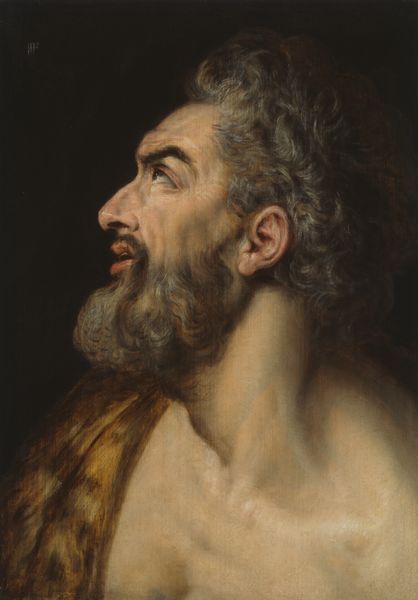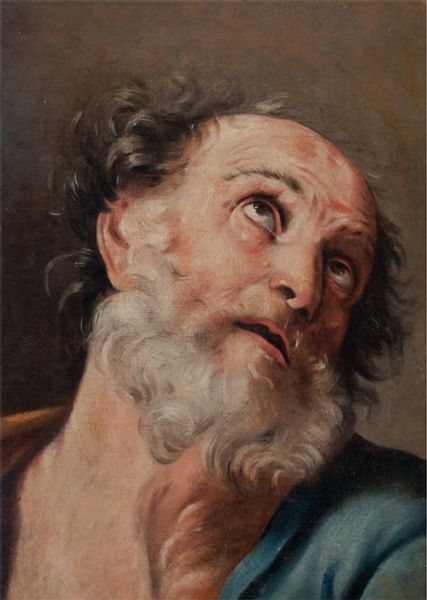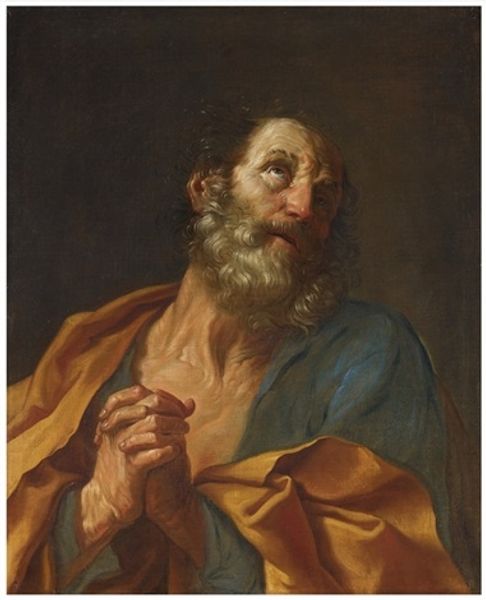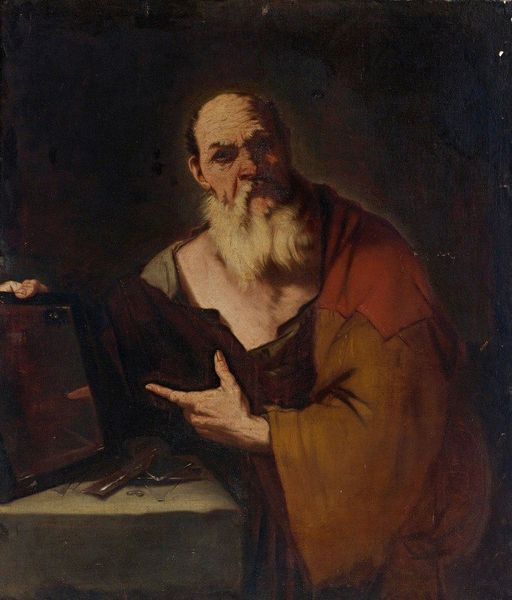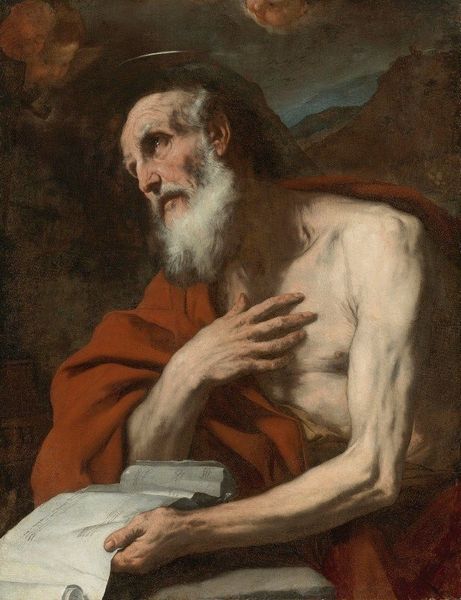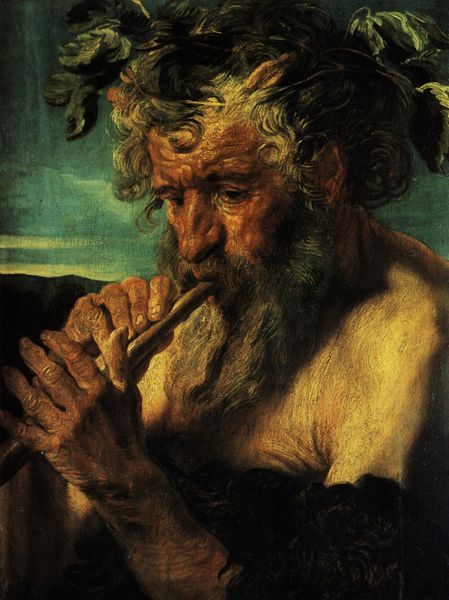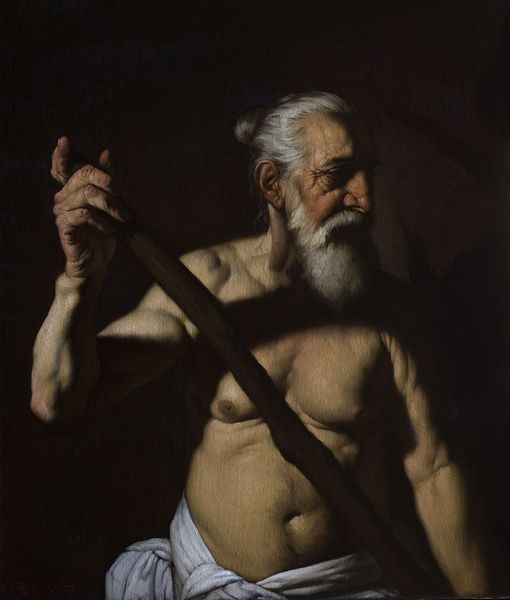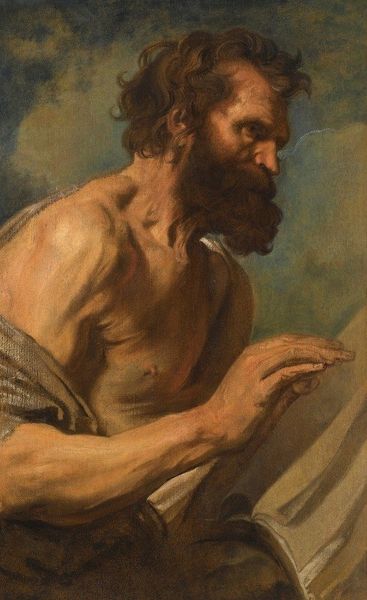
painting, oil-paint
#
portrait
#
self-portrait
#
baroque
#
portrait
#
painting
#
oil-paint
#
chiaroscuro
#
christianity
#
human
#
history-painting
#
academic-art
Dimensions: 77 x 71 cm
Copyright: Public domain
Jusepe de Ribera painted Saint Jerome, sometime in the 17th century, using oil on canvas. Here, Jerome’s gaunt figure, with the stone, is not merely a representation of Christian asceticism, but a symbol laden with cross-cultural echoes. Observe how the act of penance, signified by the stone, re-emerges throughout the ages, from ancient rituals of atonement to modern expressions of grief and self-discipline. Think of the flagellants, their self-inflicted pain a bridge to the divine; a similar impulse appears in other epochs, each bearing the weight of collective guilt. This stone, then, becomes a transhistorical object, morphing in shape, yet eternally resonant. The emotional intensity of the image also invites us to consider how collective memory and the deep-seated human need for expiation intertwine. Thus, the motif resurfaces, evolves, and finds new meanings in different historical contexts.
Comments
No comments
Be the first to comment and join the conversation on the ultimate creative platform.
